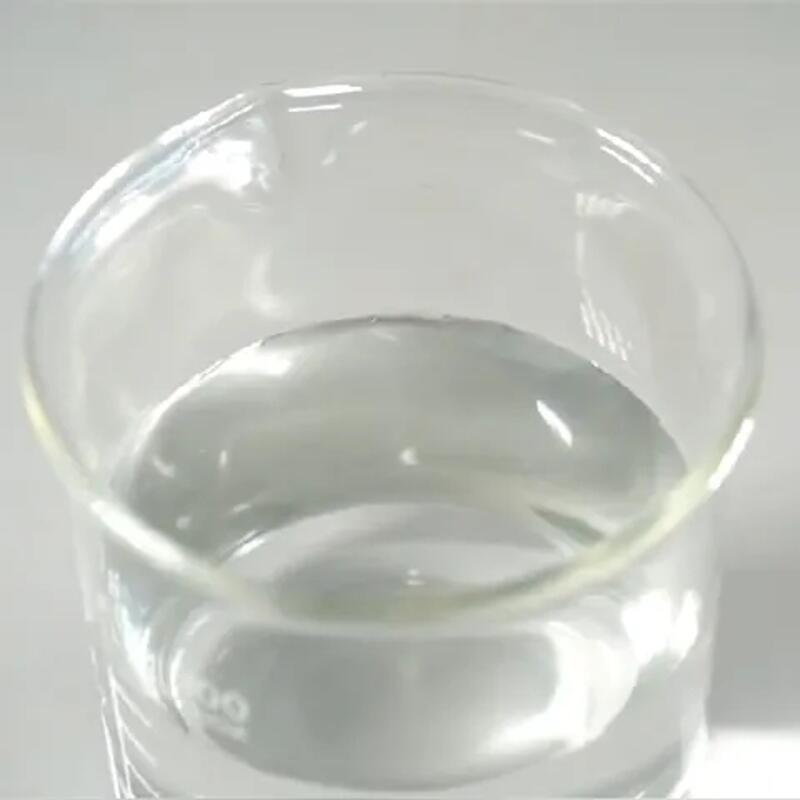-
Categories
-
Pharmaceutical Intermediates
-
Active Pharmaceutical Ingredients
-
Food Additives
- Industrial Coatings
- Agrochemicals
- Dyes and Pigments
- Surfactant
- Flavors and Fragrances
- Chemical Reagents
- Catalyst and Auxiliary
- Natural Products
- Inorganic Chemistry
-
Organic Chemistry
-
Biochemical Engineering
- Analytical Chemistry
-
Cosmetic Ingredient
- Water Treatment Chemical
-
Pharmaceutical Intermediates
Promotion
ECHEMI Mall
Wholesale
Weekly Price
Exhibition
News
-
Trade Service
Significant pathophysiological changes due to progressive liver failure can directly affect anesthesia management
01
Changes in the blood system
Coagulation disorders
Many patients with end-stage liver disease have coagulation disease due to a decrease in all hepatic-derived coagulation factors (e.
Anticoagulants such as antithrombin, protein S, and protein C activity are also reduced
The overall effect of these coagulation disorders on individual patients with liver failure varies, as patients may present with coagulation disorders with bleeding and/or hypercoagulable states with thrombosis
anaemia
Patients receiving liver transplants may develop anemia
02
Changes in the cardiovascular system
Vasodilation and high cardiac output
Liver failure results in vasodilatory hyperdynamic circulatory states
The vasoconstrictive system (i.
e.
, the renin-angiotensin-aldosterone system and the sympathetic nervous system) is activated to maintain blood pressure and organ perfusion
by increasing cardiac output, systemic vascular resistance to non-visceral organ vascular beds, and vascular content.
Patients with liver failure have low levels of endogenous arginine vasopressin (AVP), so the vasopressive effect of exogenous AVP or AVC analogues (e.
g.
, vasopressin) is effective
for them.
Portal hypertension
Increased resistance to intrahepatic portal blood flow can cause portal hypertension
.
In addition, long-term high cardiac output may lead to pulmonary hypertension, which is initially reversible but often develops irreversible
.
The transplant team assesses the severity of
portal hypertension using echocardiography (estimated right ventricular systolic blood pressure) or right ventricular catheterization during preoperative examination.
In addition, it should be determined whether the main reason for the increase in pulmonary artery pressure (PAP) is high cardiac output with volume overload (which improves with diuretics) or whether the increase in pulmonary vascular resistance (PVR) itself
.
Improvement in patients with pulmonary hypertension after inhaled treatment with nitric oxide should also be assessed
.
Severe portal hypertension is a contraindication to liver transplantation, but it is currently thought that some patients may undergo transplantation even in the presence of severe pulmonary hypertension
.
However, the outcome in such patients was inferior to that in patients
without portal hypertension.
If a patient on the list of liver transplants has severe pulmonary hypertension and an average PAP > 45 mmHg, the anesthesiologist and all members of the transplant team are consulted
.
Such patients must continue long-term use of the drug throughout the perioperative period to minimize pulmonary hypertension
.
03
Changes in the lungs
Hepatopulmonary syndrome
Hepatopulmonary syndrome is characterized by a triad of liver disease, portal hypertension, and arterial oxygenation abnormalities
due to vasodilation in the lungs.
Oxygenation impairment may be mild to severe
.
Pre-transplant oxygenation evaluation includes shunt evaluation with transthoracic echocardiography and "bubble examination" to determine whether hepatopulmonary syndrome is the main cause of
hypoxemia.
Mild to moderate symptoms of hepatopulmonary syndrome usually do not affect intraoperative anesthesia management
.
In fact, compared with the upright position, the intrathoracic pressure in the patient's supine position is elevated, which in turn compresses the blood vessels in the lungs, resulting in an abnormal reduction in transpulmonary shunts, resulting in an improvement
in oxygenation.
However, severe hepatopulmonary syndrome may lead to refractory hypoxia, and in some cases extracorporeal membrane oxygenation (ECMO)
may be required.
VV ECMO is not fixed in its activation time, and in rare cases, VV ECMO
is required before sending patients to the operating room for transplantation.
Restrictive lung disease
In many patients with liver failure, large amounts of ascites lead to a decrease in lung volume, causing restrictive lung disease
.
In some patients, pleural effusions (i.
e.
, hepatic pleural fluid, mostly on the right side) may exacerbate these restrictive lesions
.
If the pleural effusion is severe, thoracentesis should be performed prior to transplantation, but in this case the risk of complications from insertion of a chest drain is higher
.
04
Hepatoneal syndrome
As mentioned above, visceral congestion diverts blood from the kidneys, which in turn activates the renin-angiotensin-aldosterone system and the sympathetic nervous system
.
The net effect is chronic decreased renal blood flow and prolonged intravascular "hypovolemia"
.
Some patients develop renal tubular injury that may progress to hepatoneal syndrome-acute kidney injury, characterized by an increase in serum creatinine > 0.
3 mg/dL within 48 hours, or >50%
within 7 days.
In patients with impaired renal function before transplantation, intraoperative venous-venous transfer reduces the incidence
of acute kidney injury after transplantation.
Some researchers have used continuous renal replacement therapy (CRRT) to treat patients with severe renal insufficiency, but this method is still controversial
.
Notes/run







